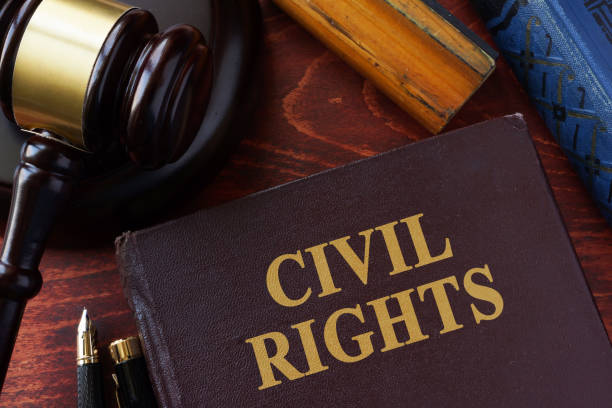CHICAGO, IL – Civil rights are fundamental protections that ensure individuals are treated fairly and equally under the law. Unfortunately, civil rights violations still occur, and when they do, it’s essential to understand the steps to seek justice. In Chicago, these violations can take many forms, including discrimination based on race, gender, religion, disability or other protected characteristics, as well as police misconduct or wrongful arrests. Knowing how to file a complaint when your civil rights have been violated is the first step toward holding the responsible parties accountable and obtaining the justice you deserve.
Understanding Civil Rights Violations
Civil rights violations can happen in various settings, from the workplace and public accommodations to interactions with law enforcement or government entities. In Chicago, common civil rights cases include police brutality, unlawful search and seizure, and discriminatory practices in employment or housing. If your civil rights have been violated, it’s essential to document the incident and gather as much information as possible. This can include eyewitness accounts, photographs or any written documentation that helps prove the violation occurred.
Federal and state laws protect individuals from discrimination and other civil rights abuses. Key laws include the Civil Rights Act of 1964, the Americans with Disabilities Act, the Fair Housing Act and the Illinois Human Rights Act. These laws provide a framework for individuals to seek recourse when their rights are violated. However, navigating these laws can be complex, which is why working with an experienced civil rights attorney is often critical to a successful outcome.
Filing a Complaint with a Government Agency
When filing a civil rights complaint in Chicago, the first step is often to file a formal complaint with the appropriate government agency. The specific agency will depend on the nature of the violation. For example, employment discrimination claims are typically filed with the Equal Employment Opportunity Commission (EEOC) or the Illinois Department of Human Rights (IDHR). Housing discrimination complaints may be filed with the Department of Housing and Urban Development (HUD), while cases involving police misconduct may be reported to the Civilian Office of Police Accountability (COPA) in Chicago.
Once you file a complaint, the agency will investigate the matter and determine whether there is sufficient evidence to proceed with a legal claim. It’s essential to file your complaint promptly, as most agencies have strict deadlines. For example, employment discrimination complaints must typically be filed within 180 days of the violation. Failing to meet these deadlines can jeopardize your ability to seek justice.
Working with a Civil Rights Attorney
Filing a complaint with a government agency is only the first step. In many cases, it’s beneficial to work with a civil rights attorney who can guide you through the process and help build a strong case. An attorney will not only assist with the paperwork and filing requirements but will also help gather evidence, interview witnesses and advocate on your behalf throughout the investigation. If the agency finds that a violation occurred, your attorney can help negotiate a settlement or take your case to court if necessary.
Civil rights cases can be particularly challenging because they often involve powerful entities, such as employers, government agencies or law enforcement officers. These organizations typically have experienced legal teams working to defend against claims. Having a knowledgeable attorney by your side ensures that your rights are protected and increases your chances of receiving fair compensation for any harm you’ve suffered.
Pursuing a Lawsuit
If a government agency determines that your complaint has merit or if the agency’s resolution is not satisfactory, you may have the option to file a civil lawsuit. Civil rights lawsuits allow victims to seek compensation for damages, including lost wages, emotional distress and punitive damages intended to punish the wrongdoer. In some cases, civil rights lawsuits also lead to systemic changes within organizations or government bodies, preventing future violations.
Filing a civil rights lawsuit can be a lengthy and complex process, but it’s often the best way to hold violators accountable and seek justice. Your attorney will help guide you through this process, from filing the lawsuit to representing you in court. It’s essential to act quickly, as civil rights lawsuits are subject to statutes of limitations, which limit the time you have to file a claim.
Contact a Civil Rights Lawyer in Chicago, Illinois
Civil rights violations are serious offenses that should not be ignored. If you believe your civil rights have been violated in Chicago, understanding the process of filing a complaint is crucial to seeking justice. From reporting the violation to working with our attorney’s and pursuing a lawsuit if necessary, each step plays an important role in holding the responsible parties accountable. By taking action, you can protect your rights and potentially help prevent similar violations from happening to others. Contact the Dinizulu Law Group at (312) 384-1920 or fill out this form to receive a free consultation.



